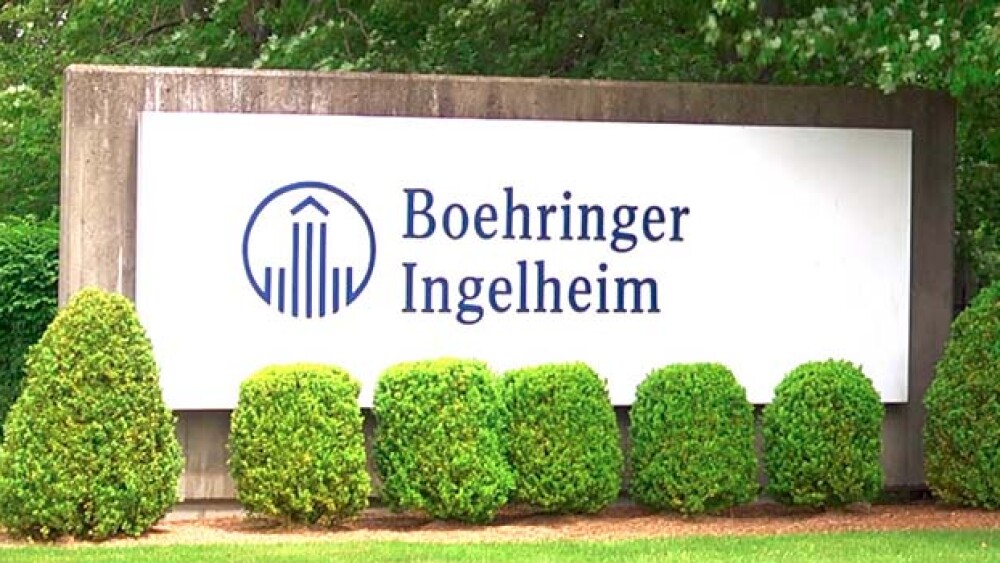Bridge Biotherapeutics licensed out its BB-877 to Boehringer Ingelheim for a total deal of about $1.75 billion. This is the second large deal for fibrotic diseases Boehringer Ingelheim inked since the beginning of the month.
South Korea-based Bridge Biotherapeutics licensed out its BB-877 to Germany-based Boehringer Ingelheim for a total deal of about $1.75 billion. This is the second large deal for fibrotic diseases Boehringer Ingelheim inked since the beginning of the month.
Under the terms of the agreement, Boehringer Ingelheim is paying Bridge Bio $50.57 million up front and up to $1.25 billion in milestone payments. On top of that, Bridge Bio will be eligible for royalties on any subsequent marketed product.
BB-877 was originally discovered by LegoChem Biosciences. In 2017, LegoChem licensed the product to Bridge Bio. The compound is in a Phase I clinical trial in the U.S. It is being developed for fibrotic diseases like idiopathic pulmonary fibrosis (IPF) and non-alcoholic steatohepatitis (NASH). The initial development will be for IPF.
“We are glad to join hands with Boehringer Ingelheim, which leads the global idiopathic pulmonary fibrosis treatment industry,” stated Lee Jung-kyu, chief executive officer of Bridge Biotherapeutics. “We expect that possibilities to successfully develop a new drug for treating idiopathic pulmonary fibrosis will increase through this partnership.”
IPF is a lung disease that causes scarring, or fibrosis, of the lungs. The cause is unknown, but the result is it becomes more difficult to breathe. Although the actual causes are unknown, genetics plays a factor, as does tobacco use—about 75% of IPF patients are current or previous cigarette smokers, according to the Canadian Lung Association. Other factors include acid reflux, gender—about 75% of IPF patients are male—and age, with most patients over the age of 50.
Another fibrotic disease that the compound may be developed for is NASH, which is similar to cirrhosis of the liver, but which occurs in patients with little or no alcohol consumption. It is a largely unmet medical need related to the obesity and diabetes epidemic.
Fibrotic diseases are of growing interest to Boehringer Ingelheim. On July 1, Boehringer Ingelheim signed a collaboration and license deal with South Korea’s Yuhan Corporation to develop a first-in-class dual agonist for NASH and related liver diseases. Their focus will be on combining GLP-1 and FGF21 activity in one molecule.
Yuhan has expertise in FGF21 biology, obesity and NASH, while Boehringer Ingelheim has expertise in cardiometabolic diseases. Preclinical studies have suggested that a combination of GLP-1, which is often used to treat type 2 diabetes, and FGF21 (fibroblast growth factor 21) regulates energy balance and is involved in weight loss and blood sugar control, can decrease liver cell injury and liver inflammation. The combination may also decrease or protect against fibrosis.
“We look forward to working jointly with Boehringer Ingelheim, with its strong track record of bringing new treatments to patients with cardiometabolic disease,” stated Jung Hee Lee, chief executive officer and president of Yuhan Corporation. “Boehringer Ingelheim’s clinical expertise will now be applied to the development of this drug which has the potential to make a real difference for patients with NASH. This molecule, which is a fusion protein utilizing the long-acting (HyFc) technology of Genexine, has been developed in-house by Yuhan Corporation. Not only is our collaboration with Boehringer Ingelheim on this molecule Yuhan’s first external partnership with biologics, it is also the very first out-licensing of biologics targeting NASH from Korea.”
Under that earlier deal, Boehringer Ingelheim paid Yuhan up front and near-term payments of $40 million, with milestone payments up to $830 million plus tiered royalties on future net sales.





